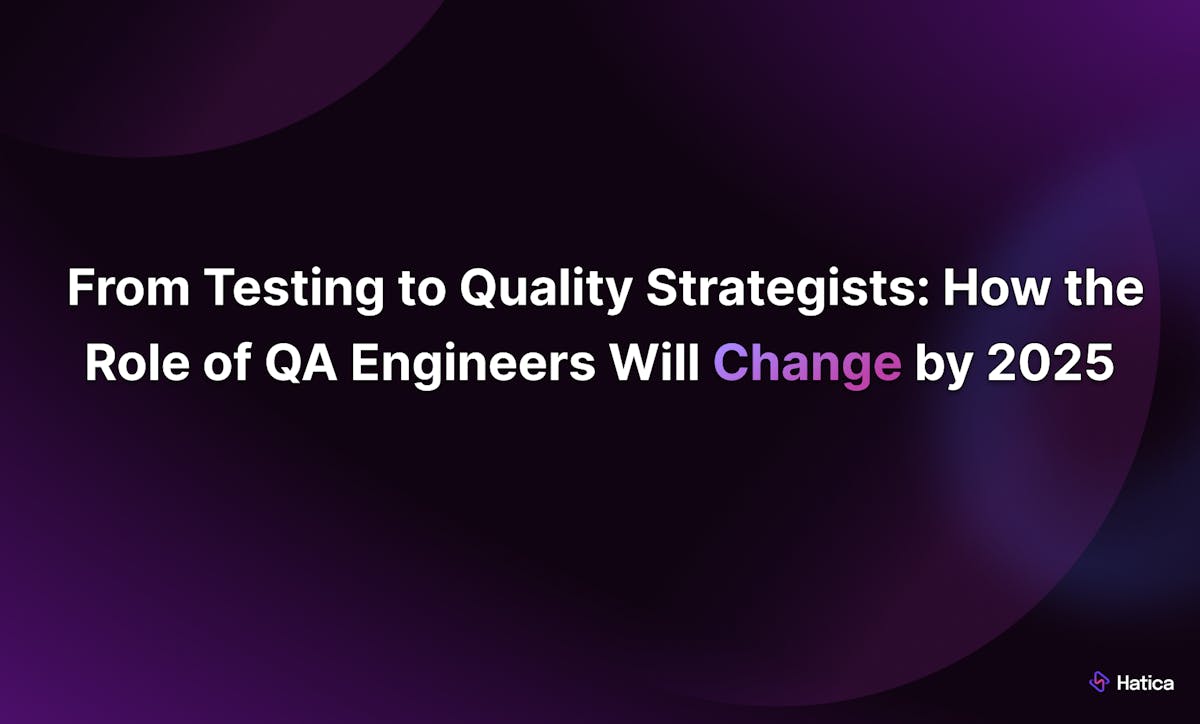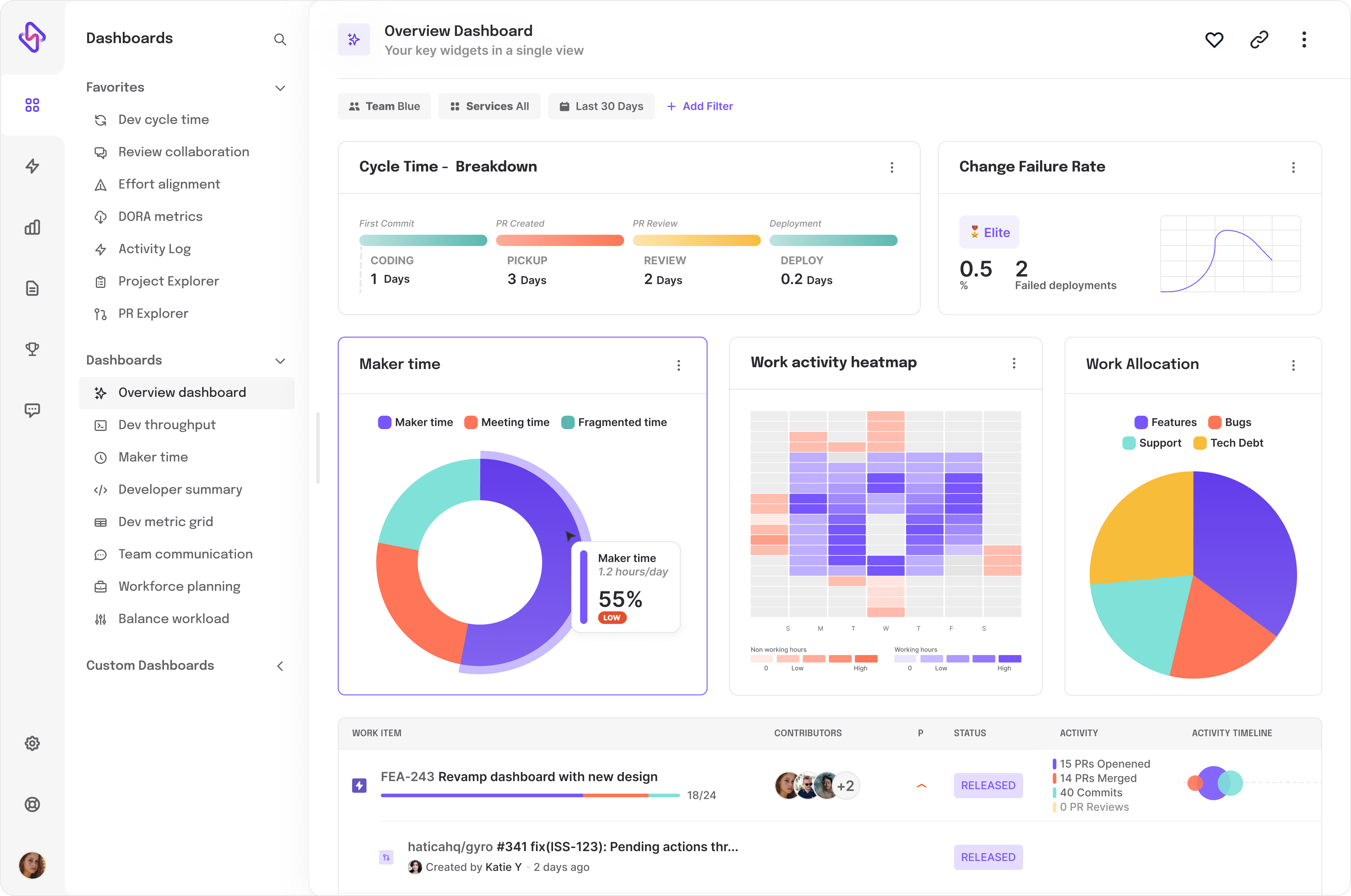Once seen primarily as the last line of defense before deployment, QA engineers are now being asked to do much more. They are becoming quality strategists—deeply involved in every phase of the software development lifecycle, influencing decisions that affect not just product quality but engineering team efficiency and business outcomes.
Capgemini reports that 77% of organizations are investing in artificial intelligence solutions to elevate their quality engineering efforts. This highlights more than just a technological shift; it’s an essential reshaping of the way engineering teams approach QA, turning it into a proactive, strategic function that extends far beyond testing.
It points towards a direction that quality, once an afterthought, must be embedded into the DNA of every engineering process.
But as we push towards faster releases and more agile processes, will the role of QA engineers be redefined entirely? The answer lies in the fine balance they’ll need to strike between speed, quality, and strategic foresight.
Therefore, in this blog, we’ll cover how the role of QA engineers is evolving in 2025 and beyond.
What short-term and long-term changes can we expect and how will this QA Engineer role evolve in the near future? Let’s take a moment and explore this in topic in depth.
What Short-Term Changes Can We Expect in QA by 2025?
2025 is only a couple of months away, and we can expect several key changes in how QA engineers approach their roles. These changes in QA Engineer roles will redefine how quality is managed within teams. These changes aren’t just about technology—they’re about shifting mindsets, practices, and strategies.
Let’s start by exploring the shift from testing to a broader quality strategy.
The Shift from Testing to Quality Strategy
In the past, QA engineers were primarily focused on testing—finding bugs and ensuring that the product worked as intended before it was released to users. However, this reactive approach to quality is no longer enough in today’s environment. Before long, QA engineers will shift from being testers at the end of the process to quality strategists who are involved from the very beginning.
This means that QA will no longer be about catching issues after the fact. Instead, QA engineers will play a proactive role in shaping how quality is built into the product from day one. They’ll collaborate closely with developers, product managers, and other stakeholders to establish quality benchmarks early on.
This change won’t happen overnight, of course. However, we can expect their roles to expand more into how they influence development teams to think about quality throughout the entire process and prioritize which quality aspects are most critical to address.
Balancing Speed and Quality
As companies push for faster releases and continuous integration, the challenge for QA engineers will be striking a balance between speed and quality. The demand for quicker delivery often comes with the risk of cutting corners, which can lead to technical debt or degraded user experiences.
In the coming months and beyond, one of the changes in QA engineers’ role is to navigate this fine line. They’ll need to assess when it’s acceptable to ship a feature quickly and when it’s necessary to slow down and ensure higher levels of quality. This balancing act is what will set apart successful engineering teams from those constantly battling production issues.
But here’s where it gets interesting: the role of QA will no longer be about saying "no" to releases that don’t meet certain quality thresholds. Instead, it will be about finding ways to enable speed while ensuring the product remains robust. QA engineers will need to drive conversations about how automation, early testing, and smarter processes can improve both speed and quality.
They’ll become trusted advisors to leadership, guiding them through the strategic decisions that impact both product timelines and user satisfaction.
Increased Use of Automation
One of the most significant changes we’ll see in the role of QAs by 2025 is the increased adoption of automation in testing. Automation tools will take over many of the repetitive, manual testing tasks that QA engineers have traditionally handled. This will allow teams to test faster and more efficiently, enabling quicker feedback loops and more frequent releases.
Automation will also free up QA engineers to focus on more complex, high-value work such as strategizing around quality benchmarks, identifying potential risks earlier, and overseeing the health of automation frameworks themselves. In the approaching months, QA engineers won’t just be automation users; they’ll be automation architects, deciding which tools to use and ensuring these tools align with overall team goals.
However, the short-term changes are just scratching the surface. The real transformation happens when we zoom out and look at the long-term evolution of QA engineers. This isn’t about minor technical adjustments—it’s a shift in how QA will redefine what it means to build truly great software, balancing the tricky trio of speed, quality, and business impact. To really understand where this is heading, we need to explore these shifts in detail and see how they’ll influence not only the product but the very dynamics of your team and the future of engineering. So let's get these long-term shifts and what they’ll really mean in the next section of the blog.
What Long-Term Changes Can We Expect in QA by 2025?
We’ve covered just the tip of the iceberg. Looking ahead, the future of QA engineers will be embedded in the heart of engineering teams, shaping not just how we build software but how we think about it, how we measure success, and how we adapt to an ever-changing landscape.
Driver of Continuous Improvement
QA engineers can be expected to be the driving force behind continuous improvement in the development process. This isn’t about small tweaks here and there. It’s about being the ones who ask the hard questions, like: "Is this process really working for us?" or "Are we prioritizing speed over long-term quality?"
And here’s the thing: the future of QA engineers can expand into navigating trade-offs. There can be times when they have to advocate for slowing down, not because the product isn’t ready but because the underlying development practices need refining. It’s easy to think that speeding up is always the goal, but what if QA engineers become the voice of reason that points out the hidden costs of always rushing? They might become the ones who help the engineering team focus on creating sustainable processes, ensuring that the need for speed doesn’t become a shortcut to technical debt.
This isn’t just about tools and testing frameworks—it’s about cultivating a culture where quality is everyone’s job, and QA is at the center, steering those conversations.
Collaboration Across Teams
The future of QA engineers looks like an increased level of collaboration with product managers, customer success teams, and even marketing.
Why?
Because quality isn’t just about code that works; it’s about how well the product meets customer expectations and business goals.
This cross-team collaboration will encourage QA engineers to step into a new kind of leadership. They’ll need to interpret data from various sources—customer feedback, user analytics, and even business metrics—and translate that into actionable insights for the product. Here’s where the nuance comes in: QA engineers will no longer just say, "We found these bugs." Instead, they’ll ask, "How do these bugs align with customer pain points? Are we solving the right problems?"
QA engineers will essentially become the bridge between what the business wants and what the product delivers, often pushing back when the two don’t align.
That kind of strategic thinking will elevate the role to a whole new level.
Redefining Quality as a Business Value
One of the most significant changes coming is how much more business-centric QA engineers will become. Their role will evolve beyond ensuring the product works technically to focusing on how well it performs in real-world scenarios and how much it contributes to the company’s bottom line.
For example, imagine you flag a performance issue that affects only 5% of users. In the past, this might have been considered a minor problem. But what if that 5% includes your highest-value customers? Suddenly, the question isn’t, "Should we fix it?" but rather, "How fast can we fix it before it costs us revenue?"
Expect these changes to be subtle but powerful. We’ll use insights from customer feedback and business analytics to drive quality in ways that push the product—and the company—forward. This is where QA moves from being a support function to becoming a strategic partner in delivering business value.
Looking Ahead: How QA Will Drive Lasting Impact in 2025 and Beyond
As we’ve explored throughout this blog, the role of QA engineers is evolving far beyond its traditional boundaries, such as becoming a proactive force that helps shape how software is built from the start. While the shift might seem gradual, its impact is huge. This redirection is not just about efficiency or defect prevention—it’s about sustainability.
Sustainability, in this context, means building resilient systems that can handle future growth, ensuring that short-term wins don’t bleed into long-term issues. In the near future, QA engineers will be the ones asking, “How does this decision impact the product six months, a year, or even five years from now?” It’s a strategic redirection from being problem solvers to solution shapers, ensuring that engineering teams aren’t just focused on the here and now, but on building something that will last.



